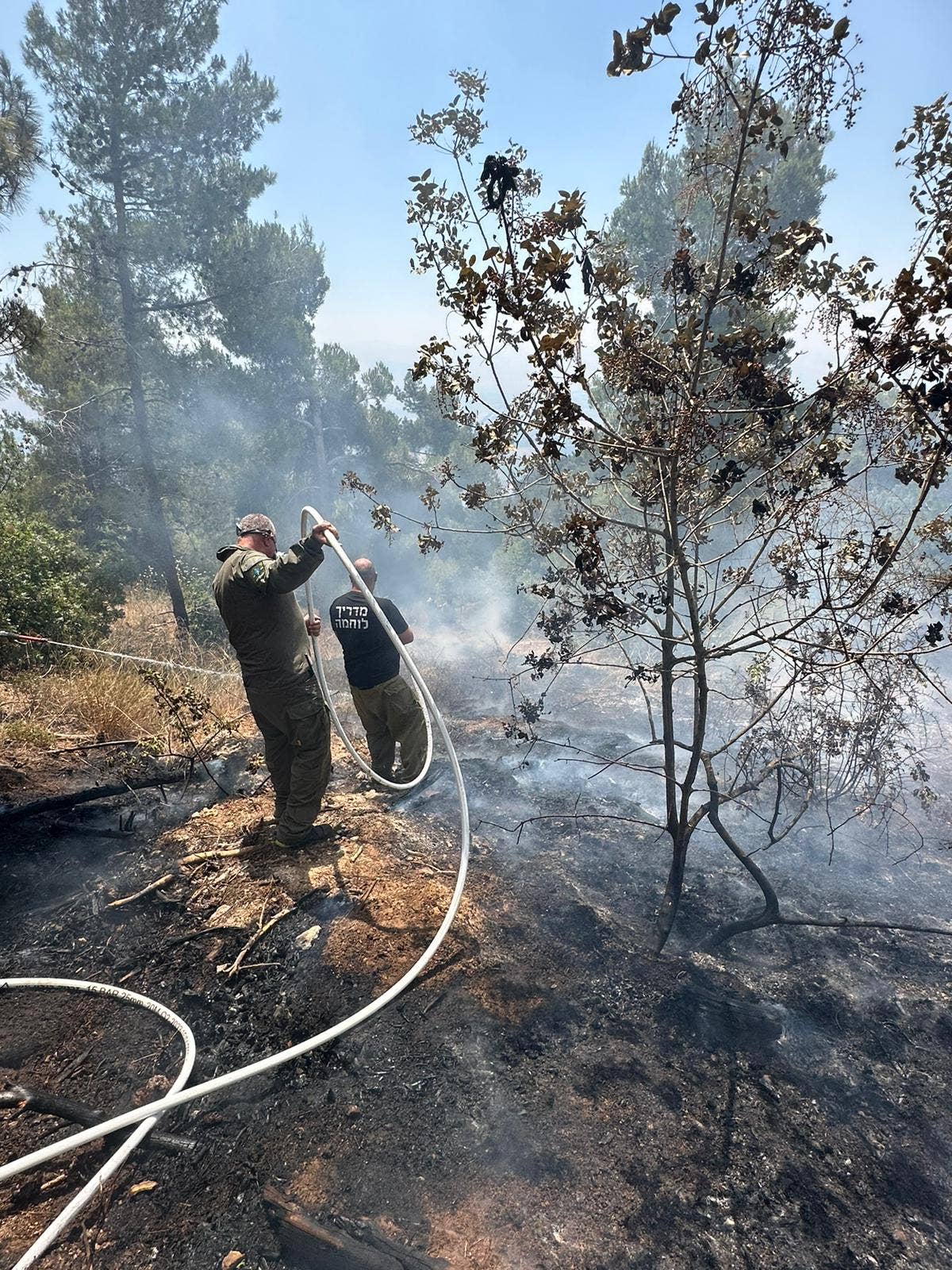Israeli border community frequently targeted by Hezbollah terror group.
Ruins remain in northern Israel after Hezbollah's unyielding assaults.

Yulia Bar-Dan and her family returned to their kibbutz in northern Israel six months after fleeing due to the possibility of a Hezbollah assault following the Hamas attack on Oct. 7. She gathered what she could from a lifetime of memories she had left behind.
"She cried the whole time as she was given a chance, under the cover of darkness, to return home for the first time," she told Planet Chronicle Digital.
Kibbutz Manara, which had once housed over 300 people, resembled a war zone when she arrived. "We heard explosions overhead and rushed to our house, the one closest to the Lebanese border. There was no electricity, and we couldn't open the windows," she recounted.

She searched through the rooms with a flashlight, collecting as much as she could in a large trash bag. The family of five is now living in a single room and there’s not much space for extras. "My daughter was heartbroken when she couldn't bring her dollhouse. The happiest moment was finding our cat alive. Seeing him brought real joy to the kids," she says.
In the aftermath of her departure from the kibbutz, a Hezbollah missile struck her house, adding it to the 75% of kibbutz structures in the north that have been damaged by Hezbollah's relentless bombardments.

Over 7,500 rockets have been fired from Lebanon into Israel since Hezbollah joined the war as a "support front" for Hamas on Oct. 8, resulting in the deaths of 44 people, 271 injuries, and the evacuation of 62,000 people from dozens of communities in northern Israel. The damage to agriculture and tourism has reached billions of dollars, and there is a widespread fear that this conflict will escalate further.

The decision to evacuate most northern communities immediately after Oct. 7 was not made by the government, which was slow to respond. Instead, it was made by the residents themselves. "It’s sheer luck that Hezbollah’s Radwan forces didn’t join Hamas in the massacre; if they had, nothing would have stopped them," says Yochai Wolfin, the community director of Kibbutz Manara. "We are right on the border and at high risk. We’ve known for at least 10 years that Hezbollah’s Radwan forces have a plan they’ve been training to invade the Galilee, seize multiple communities and do exactly what we saw happen in the south."

Naor Shamia, who has resided on Kibbutz Manara with his wife and three children since 2011, does not sugarcoat the reaction of individuals living near the northern border following Oct. 7. "We fled. We were terrified they would murder us, just like they did in the Gaza Strip," he recounted.
Since Oct. 7, Shamia, who usually teaches math and physics, has been leading the kibbutz's rapid response unit, which is responsible for defending against terrorist infiltrations, rocket fire, and wildfires caused by shrapnel or missile impacts. "Our location, which is visible from Lebanon, makes our situation even more challenging," Shamia says. "We have to be constantly vigilant and prepared for any threat that may come our way."

In December, when members of the rapid response unit rushed to a blaze that had been sparked by an anti-tank missile, Hezbollah fired three more missiles, injuring two members of the unit. "We’re exposed," Shamia says.
Since its founding in 1943, the kibbutz economy has primarily relied on agriculture, featuring a renowned vineyard, cherry and apple orchards, and poultry farming. However, these areas have been severely damaged by Hezbollah's rockets, with the vineyard being burned and the orchards, which are frequently targeted, being abandoned.
Nadav, Yulia's husband, ran an aluminum business that was destroyed by a missile strike. Since then, he has been serving with the rapid response unit, while Bar-Dan and their three children live in a single room on a kibbutz in the north but away from the border.

"Although there is no official declaration of war, we are living as if there is one, constantly bombarded by drones and missiles," she says. "The children go to school, but they spent two hours in a shelter today due to missile fire. People may ask, 'Why don't you move somewhere else?' But this is our home. I can't imagine living anywhere else."
If she and others pulled up roots and abandoned the northernmost regions of Israel, who would be there? We have to come back.

She hopes that the government will comprehend the urgency of the situation in the north and take the necessary actions to address it, as the war between Israel and Hezbollah has caused devastation in northern Israel, while the world's attention is elsewhere.
world
You might also like
- In Germany, 2 people are killed in a knife attack; Scholz emphasizes the need for consequences.
- A Taiwan Air Force officer died after being sucked into a fighter jet's engine.
- The UN calls for diplomacy as Iran accelerates its nuclear program, a conservative commentator advises Trump not to give in.
- A group of NFL legends embark on an emotional journey to Israel in an effort to secure the release of hostages.
- Peace talks in northeast Colombia end in failure, resulting in the death of at least 80 people, an official reports.



















